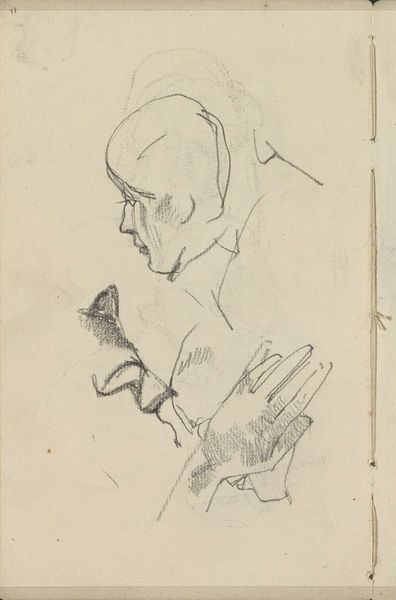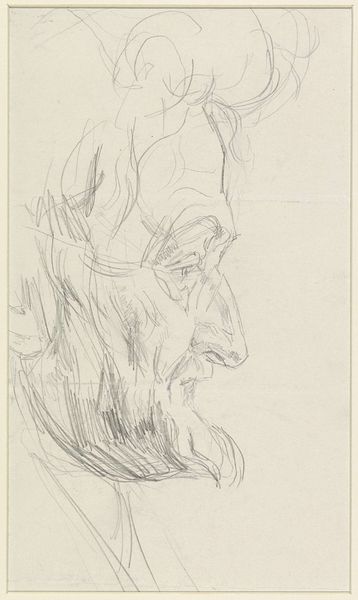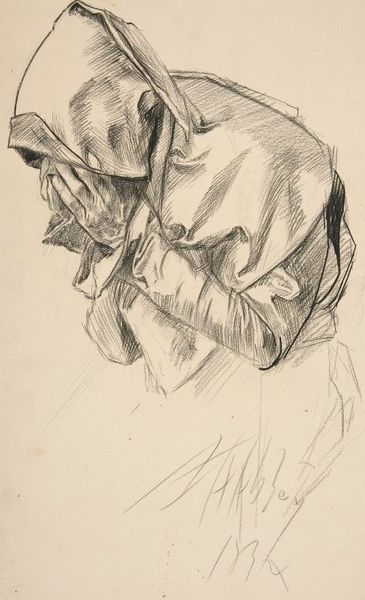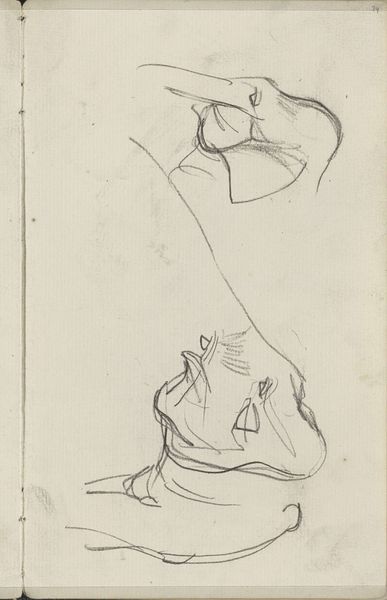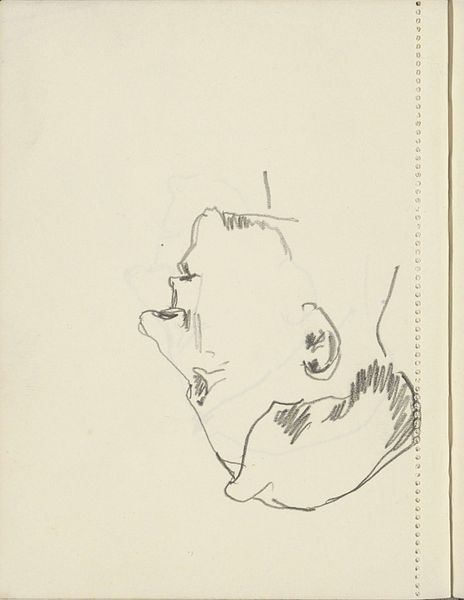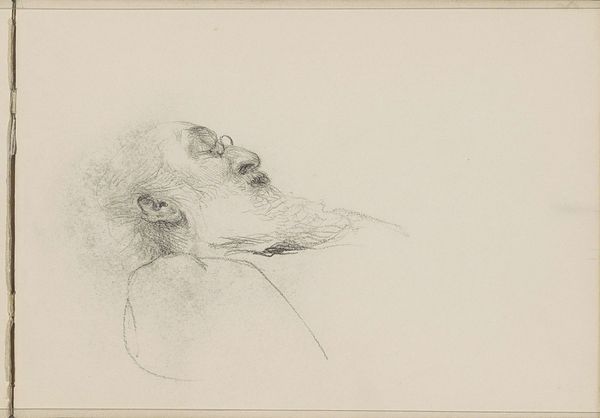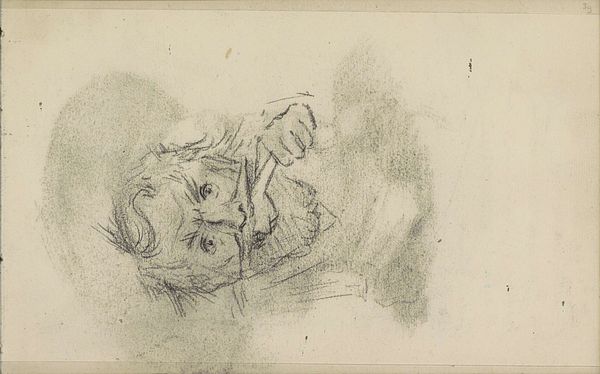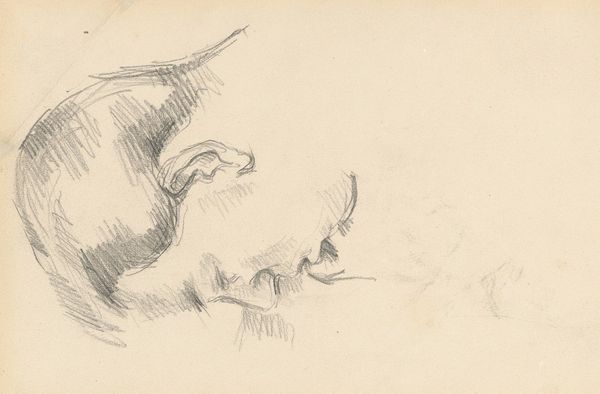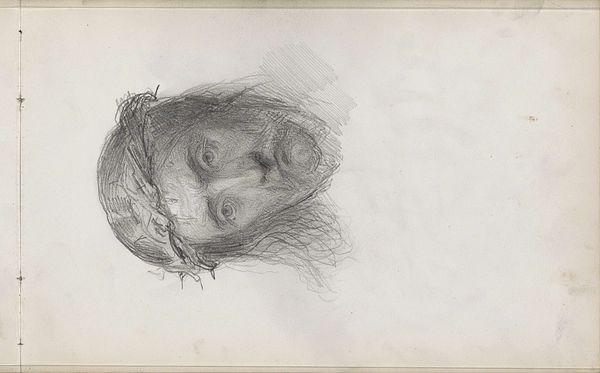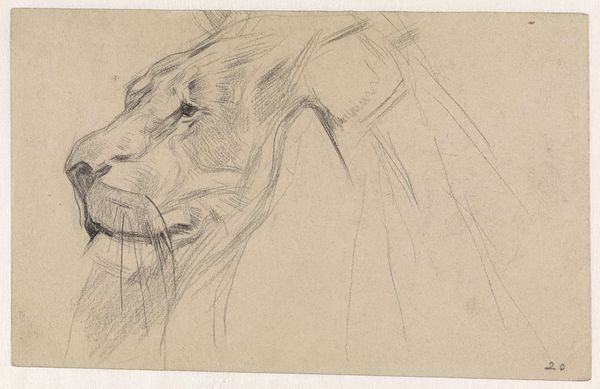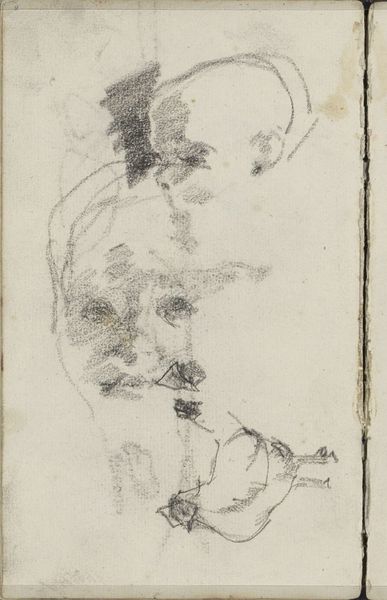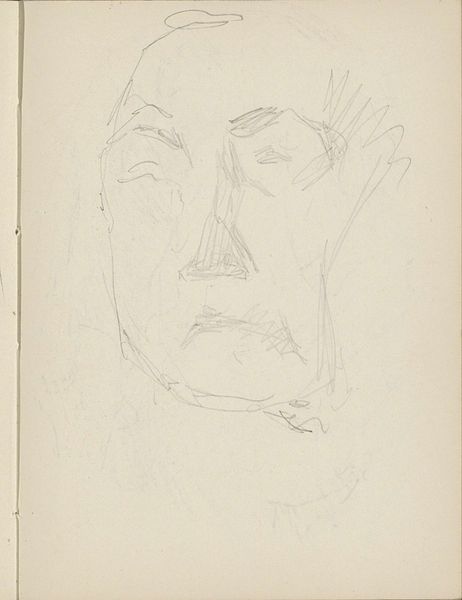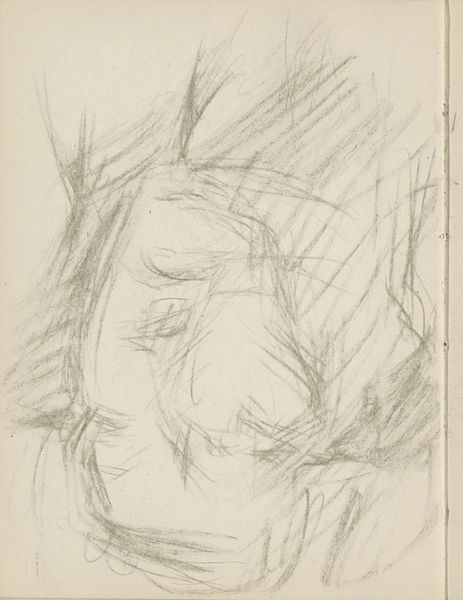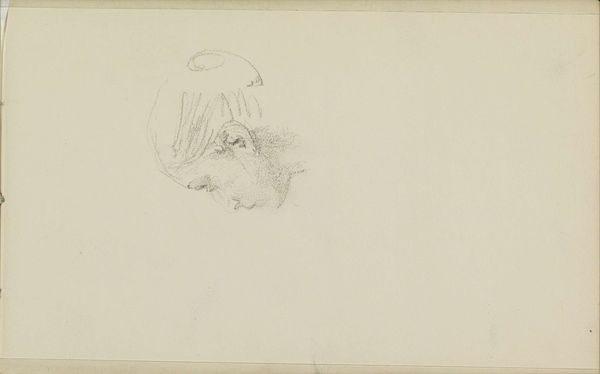
drawing, paper, pencil
#
pencil drawn
#
drawing
#
animal
#
pencil sketch
#
landscape
#
figuration
#
paper
#
pencil drawing
#
pencil
#
realism
Copyright: Rijks Museum: Open Domain
Editor: Here we have Johannes Tavenraat’s "Langharige geit" from 1839, a pencil drawing on paper. The delicate lines give it an almost dreamlike quality. How do you interpret this work? Curator: This drawing offers a lens into the 19th-century’s evolving relationship with nature and the "rural." Consider the context: rapid industrialization pushing people into cities. How might this contribute to a romanticized view of pastoral life? This goat becomes more than just an animal. It symbolizes a longing for simpler, pre-industrial times, perhaps a subtle commentary on social displacement. Do you see the tension between realism and idealization in the goat's portrayal? Editor: I do! It’s like Tavenraat is capturing the essence of "goat-ness," but filtering it through this nostalgic lens you mentioned. Curator: Precisely. It also speaks to the societal gaze upon animals. During this era, increased scientific classification often intersected with artistic representation. The goat isn't just observed; it's studied and aesthetically framed, revealing shifting power dynamics between humans and the natural world. Think about how this gaze might affect our understanding of other marginalized groups. Editor: So, it’s not just a drawing of a goat, it’s a drawing loaded with social commentary? Curator: Exactly. Art often reflects and refracts the societal anxieties and aspirations of its time. We must constantly question the artist's intent, considering how their work fits into broader historical and cultural narratives. Editor: This gives me a whole new perspective. I see so much more than just a goat now! Curator: And that’s the point – to encourage a critical awareness that makes us see and question the world around us, and hopefully, be active in transforming it.
Comments
No comments
Be the first to comment and join the conversation on the ultimate creative platform.
